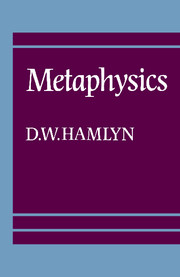Summary
The concept of the mental
I said in Chapter 1 that a discussion of what reality is entails saying something about things, their spatio-temporal framework and the persons or selves for whom they are things. I did not mean to suggest that reality is merely reality for some person or persons – that reality is relative to a point of view had by a person or persons – and I took pains in Chapter 2 to emphasize that fact. It is nevertheless a truism that our conception of reality depends upon the concepts that we have, even if reality itself is not necessarily limited by those concepts. Our conception of reality is one that includes persons as well as other things, and an account of reality must therefore make reference to them. The only question is whether it is necessary to give separate treatment to them. Why set human beings or persons (and I shall shelve until later the question whether these are the same) apart from the rest of nature? If materialism were true, that might suggest that there is, in the end, no reason for setting persons apart from the rest of nature, despite the prima facie difficulty arising from various facts about human beings, including the fact that we can speak of what reality is for them. On the other hand, Hilary Putnam has suggested that the very notion of reference to things, which is involved in the idea of things being reality for us, is something that materialism cannot explain.
- Type
- Chapter
- Information
- Metaphysics , pp. 161 - 186Publisher: Cambridge University PressPrint publication year: 1984



